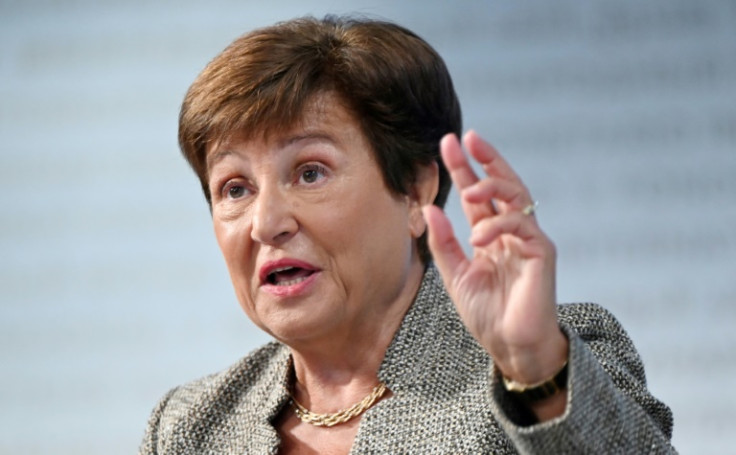
The managing director of the International Monetary Fund has told AFP she is making herself "available to serve" for a second five-year term running the Washington-based financial institution, shortly after she received the backing of European finance ministers.
"I'm not running to force people to choose me, I'm making myself available to serve, if people want me to serve," IMF managing director Kristalina Georgieva said in a video call interview ahead of a speech in the UK city of Cambridge on Thursday.
"I would bring to the job a determination for the Fund to be an institution that leans forward in addressing the most challenging problems we face," she said.
These challenges include boosting productivity and growth, "so more people have a better chance," tackling elevated post-pandemic debt levels, and making the IMF "more inclusive and more representative, so it can enjoy the trust of our members and people," she added.
The IMF officially launched the selection process to find its next leader on Wednesday, a day after European Union (EU) finance ministers threw their support behind Georgieva.
EU support could prove crucial for Georgieva, as a European has managed the Fund since its founding in 1944 due to a controversial, unofficial, agreement under which a European citizen has historically run the IMF, and an American has led the World Bank.
Given the outsized influence that Europe wields over the nomination process, the EU announcement sharply reduces the likelihood of success for other individuals whose names have been linked to the role, such as Paschal Donohoe, Ireland's minister for public expenditure.
The IMF has said it wants the process wrapped up by the end of April, well ahead of the end of Georgieva's current mandate on September 30, 2024.
Georgieva's speech at Kings College, Cambridge, took a long-term view of the challenges and opportunities facing the global economy, and made the argument that policymakers must fix "the persistence of high economic equality."
In prepared remarks, she highlighted three priority areas for long-term investment: climate, artificial intelligence, and boosting capital flows in Africa.
In her speech, Georgieva said unchecked climate change "would be catastrophic" for the planet, but insisted that "decisive policy action" this decade could help the world to reach a carbon-neutral economy.
"I recognize that we are going through a very difficult time, we have been hit by shock after shock after shock," Georgieva told AFP ahead of the speech.
"So when decisions are being taken about allocation of resources, it is at a particularly difficult time," she said.
"My objective in the work of the Fund is to provide the very best recommendation of how to balance these different pressures, and how to do that in the most responsible way for the future generations," she added.
Georgieva said the IMF had been "surprised" by the resilience of global growth this year, despite the decision by many central banks to hike interest rates to tackle inflation.
In the US, the Federal Reserve has raised rates to a 23-year high as it battles against inflation, which remains stuck above its long-run target of two percent.
"Economies with strong fundamentals are performing better," she said, adding: "that applies to Africa as well."
"We see in Africa, certain economies doing quite well because of the strength of fundamentals, because of investing in the right thing, investing in people, in quality infrastructure, in the digital economy," she said.
"And what we want from the IMF is to use our engagement, our programs and our policy engagement to drive that foundational progress, building strong foundation for the future in Africa."
Georgieva said the challenge for the IMF is to close the gaps between "strong" African economies like Ivory Coast and Benin, and some other countries on the continent.
"What we want is to bring Africa up, so that the difference in performance between best-performing and worst-performing countries shrinks," she said.







